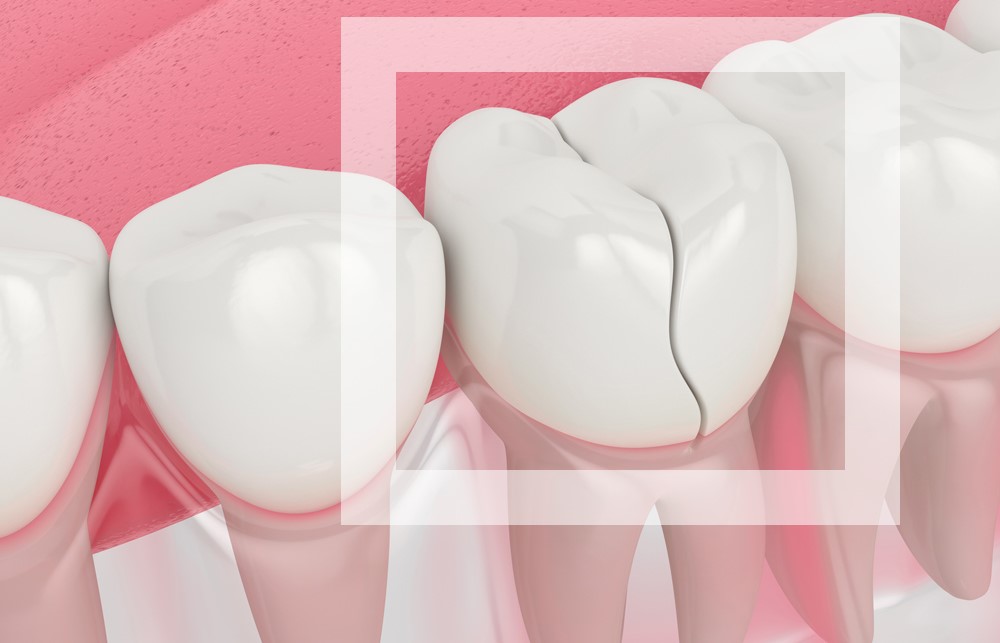Just like every part of the human body, the teeth also grow weak. When they do, they become susceptible even to the most delicate materials. While it is widely believed that cracked teeth or fractured teeth are often a result of physical injury, there are many other ways by which they could occur.
All medical content on this site, including this guide and other product reviews, is written by our team of experienced writers and researchers. All writers from The Toothbrush Expert are recommended and reviewed in the industry. You support us through our editorially chosen links, which earn us commission. learn more
All of our picks have the American Dental Association (ADA) Seal of Acceptance.
What Does Teeth Fracture Mean?
Teeth fracture is caused when there is a crack on the teeth, which may be of varying degrees. Thus, a minor chip on the crown of a tooth is as much a fracture as a visible crack that extends from the crown of a tooth right up to the gum. Also, the degree of pain varies. Sometimes, fractured teeth may cause a whole lot of pain or no pain at all.
Primarily, cracked teeth involve the dentin, and it is this type that is less painful. Seldomly, the fracture may extend to the pulp making the teeth more sensitive and may cause the patient a whole lot of pain.
Also, considering humans’ dental composition, the premolar and the molar teeth set are more prone to fracturing or cracking. This is because they are subject to constant grinding and breaking down of substances that sometimes aren’t edible soft.
Types of Teeth Fractures
Dental experts have identified that fractures can happen in so many ways aside from physical injury. Five major types of fractures have been identified, and they include:
Fractured Cusp
This type of fracture exposes the teeth’ dentin and causes the patient to experience an uncomfortable sensitivity. Often, it doesn’t cause any pain aside from the teeth sensitivity, and they are easy to treat when detected early.
A fractured cusp happens to patients with deep teeth cavities or when a patient’s teeth suffer from a failing dental filling. It doesn’t often extend to the pulp’s soft center, which contains the teeth connecting tissues, blood vessels, and nerves.
Split Tooth
This is a typical teeth fracture due to direct violent injury on the tooth, consistent forces on teeth that have undergone dental restoration, or when a severely cracked tooth is left untreated. This type of teeth fracture could lead to a very painful experience, and restoration at this point is not possible.
A split tooth affects almost all tooth areas, from the dentin to the pulp, and extraction is often carried out when necessary. Sometimes, experts refer to this type of fracture as a complete fracture.
Crazy Line
This type of teeth fracture doesn’t cause pain or discomfort. Even experts don’t often recommend treating this type of teeth fracture unless impending damage is anticipated. This type of teeth fracture is often always associated with age.
Thus, this type of fracture is anticipated more in older patients. It manifests as slight lines and cracks on the teeth’ enamel. It doesn’t often extend beyond the enamel and doesn’t result in uncomfortable teeth sensitivity.
Gumline
This is a more critical stage of a crazy line, and it is a typical example of a cracked tooth. It poses a visible crack on the enamel and crown of the teeth. Often, it is restorable or treatable if it doesn’t extend to the gum line. However, when the crack extends to the gum line or beyond, an extraction is often recommended.
This type of the fracture causes an uncomfortable level of pain and can also cause teeth sensitivity. Patients may also experience an overwhelming uncomfortable after biting down feeling.
Vertical Root Fracture
A tooth with a vertical root fracture will eventually have to be extracted by a dentist. This type of fracture extends below the gum line and could also be very painful and increase teeth sensitivity if not removed immediately. Patients with root canal-treated teeth are often more susceptible to this type of fracture.
Electric toothbrushes for sensitive teeth:
General Causes of Fractured Teeth
There are so many factors that can contribute to the fracturing of the teeth. These factors range from age to other external factors. These externals factors include teeth grinding, chewing on a hard substance, and so many others. However, fractured teeth are one of the leading causes of tooth loss in most adults.
Adults over the age of fifty may experience fractured teeth depending on their lifestyle and general dental health. Summarily, below are some of the causes of fractured teeth:
- Bruxism (teeth grinding or gnashing)
- Biting on hard substances
- Large dental filling
- Physical or violent pressure to the teeth (e.g., punch or direct physical accident)
- Age
- Excessive thermal changes (eating substances too hot and too cold)
Symptoms of Fractured Teeth
A patient with fractured teeth should look for all or any of the symptoms below and should seek professional dental help immediately:
- The extreme sensitivity of the teeth when eating cold, hot, salty, or sweet substances
- Swelling in the gum area
- Pain on teeth posterior
- In severe circumstances, bleeding may occur
Dental Remedy for Fractured Teeth
The restoration process may give a fractured tooth may depend on the fracture’s degree on a patient’s teeth. For a craze line fracture, treatment is often unnecessary, but tooth extraction may be carried out in extreme cases. Below are some of the common restoration treatment that may be rendered by a professional:
Tooth Extraction
This is the final option often explored by a dental professional when the fracture has affected the teeth’ structure. Thus, the root could no longer hold the teeth for too long, and the patient feels an overwhelming amount of pain.
Any crack or fracture that extends beyond the gum line would result in an extraction. The teeth’ socket is further examined to eliminate any fragment before the teeth implant is fixed to replace the missing teeth if the patient so wants.
Endodontic Treatment
This is also known as the root canal treatment, where the dentist or endodontist removes the damaged pulp of the teeth to restore wellness in your teeth. This prevents infection and weakening of the teeth and could save the teeth from being extracted. However, if the affected tooth or teeth suffer an extensive crack or infection, extraction may be inevitable.
Dental Crown
Dental crowns are prosthetics, often shaped like natural teeth, used over damaged or cracked teeth. They are often referred to as fake teeth, and they are made from porcelain, composite resins, or ceramics.
They protect the teeth from further damage, and when properly installed and managed, they can last for a long time. This restoration process is the best choice when the crack on the teeth isn’t entirely severe and complete extraction isn’t necessary.
Dental Bonding
Here, the dentist uses plastic resins that match the color of your teeth to fill up any obvious crack in your teeth. This procedure is a standard procedure for adults, and it is painless, less expensive, and fast.
Preventing Fractured Teeth
You cannot always provide a home remedy to fractured teeth as you need professional help. However, you can prevent any possible incidents that may lead to cracking your teeth. Thus, it is essential to practice excellent oral hygiene and avoid chewing on hard substances.
Treat teeth grinding as soon as diagnosed, and always wear a mouth guard if you get involved in activities that may result in a direct physical injury to your teeth. Once you detect a crack in your teeth, please don’t wait until it gets worst. Visit a dental expert immediately.


Dr Michael Jones is the proud founder of The Toothbrush Expert. He has been working as a dentist for 21 years now. Besides his work as a dentist, Michael wants to help people to find the right dental products. His goal is to provide everyone with honest expert reviews on all kinds of dental care products.









